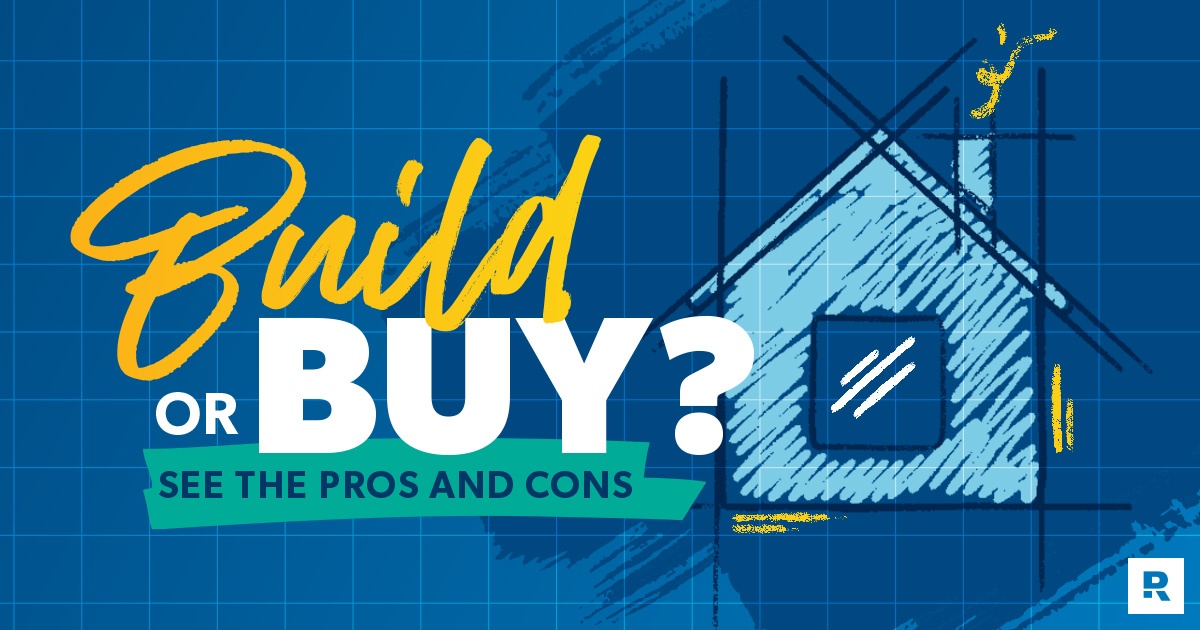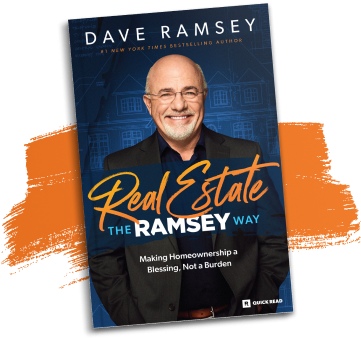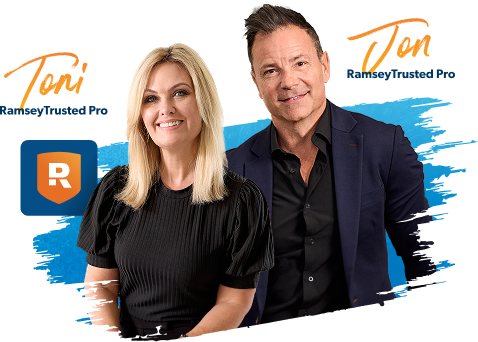Should I Buy or Build a House? The Pros and Cons
9 Min Read | Mar 26, 2025

Getting brand-new things is super fun, right? Well, it can get even better when you buy something custom-made. You can tell a designer or builder exactly what you want, and voila! They’ll make it just for you.
The problem is, custom-made things tend to cost more and take longer to make than anything store-bought or mass-produced—especially when it comes to houses.
Time and money are two important things to consider when you’re deciding whether you should buy or build a house. To help you make the best choice, let’s break down the pros and cons of building a house, plus the costs.
Is It Cheaper to Buy or Build a House?
The average cost to build a new home in 2024 was $665,298, according to a survey by the National Association of Home Builders.3 Meanwhile, the average cost to buy an existing home (one that’s already built) in 2024 was about $510,300.4
When you do a little quick math, you’ll see buying an existing home instead of a new one could save you over $150,000. That’s a lot of money! (Just think of all the Disney trips you could take with the difference.)
It makes sense, though, right? Buying something new (whether it’s a purse, a car or anything else) is almost always more expensive than buying something pre-owned. Think about what a pair of jeans from a thrift store costs compared to buying them new from a department store.
And thanks to inflation, builders are also paying more for building materials and other resources they need, like workers and fuel. All that to say, building a house is not cheaper than buying.
Building Your Own House vs. Buying a House
Now, you’re probably checking out Zillow listings and wondering, How much does it cost to build a house? Is it better to build or buy a house? Maybe the price tag is worth it . . . And you may be right! Or building a house could be a terrible idea for you. Whether building or buying a house is a better option really depends on your situation.
Whenever I have a big decision to make (and what’s bigger than buying a house?), I like to weigh the pros and cons. So, here are some pros and cons of building a house and buying a house to help you decide the best way to go.
Get a Real Estate Game Plan With Dave’s New Book
Learn Dave Ramsey’s roadmap to buy, sell and invest in real estate the right way, so your home can be a blessing, not a burden.
Pros and Cons of Building a House
Pros
- Customization: Building a house from the ground up lets you personalize it to suit your lifestyle and tastes—everything from the layout, cabinets and flooring to the sinks, lighting and doorknobs! Even cookie-cutter homes built within subdivisions allow for some customization in colors, flooring and certain finishes. So, whether you’re after a rustic feel or a fancy art deco vibe, you can make these style choices early on.
- Low to no competition: When you own land to build your home on, you obviously have zero competition with other buyers.
- Little maintenance: Since new homes must meet current building codes and have up-to-date technology, you probably won’t have to worry about big repairs or maintenance issues for the first few years—no leaky roofs or failing HVAC systems for you.
- Low energy costs: New homes often feature the latest energy-efficient systems and materials, which usually lead to lower energy bills.
- Newness: You get to start fresh as the first owner of your home and enjoy brand-spanking-new everything. I love that new house smell—don’t you?
Cons
- Price: We already know one disadvantage of building a house is that it costs more than buying an existing home. That’s not so bad if you’re able to budget for it, but that extra expense can be a real hang-up for some people.
- The wait: It can take close to a year to build a new house between planning, approvals and the actual construction. On the other hand, closing on an existing house usually only takes 30–60 days.5 Plus, if you’re building, you’ll have to pay to live somewhere until your new home is ready. That means you could get stuck paying your current rent or mortgage plus the construction costs for several months. Ouch.
- No negotiations: Most buyers go into an existing home purchase hoping to negotiate a lower price. While that’s super common in the resale market, there isn’t much leeway on closing costs or purchase price with a newly built home unless your real estate agent gets creative at the negotiating table. But even then, you’ll probably get more bang for your buck with an existing home.
- Noise and mess: If you build a house where other new homes are being built, you might have to deal with construction noise, traffic and globs of mud along your commute. Worse, you could end up with a roofing nail or a screw in your tire. Sure, the neighborhood will eventually calm down as other homes get completed, but it’s something to think about if loud noises and neighborhood construction get on your nerves.
- Stress: When you build a house, you’ll have to purchase land, decide on a home design, and pick out flooring, fixtures, cabinets, countertops, interior trim, exterior trim and on and on—all while staying within your budget. Managing all the details and nickel-and-dime expenses of building a house takes time and effort. Don’t underestimate the stamina and patience you’ll need to make sure it’s all done the right way.
- Hidden costs: Those dollar signs you see on things like countertops, fixtures and appliances are just the tip of the iceberg. Upgrades and unforeseen problems can quickly drive up the price of your new home, and those costs may or may not be rolled into your contract price. Play it safe by budgeting to pay cash for those unexpected expenses. And don’t forget about post-move costs like landscaping and blinds—they’ll sneak up on you too.
Pros and Cons of Buying an Existing House
Pros
- Price: An existing home with similar features to a new home will cost you less. But when you compare the price of a new home to an existing home, make sure it’s an apples-to-apples comparison. Don’t just consider square footage or number of bedrooms. Location also plays a huge factor in price.
- Quick close: When you buy an existing home, you won’t be stuck waiting around for your builder to install cabinets or floors before you move in. Most transactions close within 30–60 days.6 (That’s just enough time to get packed up!)
- Room to negotiate: As a buyer, you can negotiate the price with the seller. You can also negotiate on things like repairs that need to be done to the house.
- Location: The money you save by buying an existing home could help you afford a home in that neighborhood you’ve always loved. And as they say in the real estate biz, the three most important things to consider when buying a house are location, location and location.
Cons
- Repairs: As homes get older, they need repairs. A new roof or HVAC system could set you back thousands of dollars. So always keep the house’s age in mind when shopping. And an old, inefficient HVAC system could also cost you a lot more on your utility bill.
- Compromises: You probably won’t find a house that checks off every single need and want on your wish list, and you might have to settle for some things you don’t like.
- Updates: The previous owner’s style might not match yours—maybe the paint colors feel off or the fixtures aren’t your taste. So, budget for some updates to make it feel like home. (Just maybe skip the neon green.)
- Environmental concerns: If you buy a really old home, you might run into a situation where you have to take care of mold or harmful chemicals, like lead paint or asbestos tile.
- Hidden problems: Even after you get a home inspection, you could still find problems the inspector missed. (And I 100% recommend getting a home inspection before you buy a house. Don’t skip that part!)
Want More Expert Real Estate Advice?
Sign up for our newsletter! It’s packed with practical tips to help you tackle the housing market and buy or sell your home with confidence—delivered straight to your inbox twice a month!
A Breakdown of the Average Cost to Build a House
Like I said earlier, the average sales price for a newly built home is $665,298. That’s a big price tag, but keep in mind this is the average cost. Plenty of homes are built for less than this, but the larger, more expensive custom homes skew the average cost.
Find expert agents to help you buy your home.
So, here’s a rundown of the costs of building a house.
|
Sales commission |
$18,955 |
|
Financing costs |
$10,220 |
|
Lot |
$91,057 |
|
Permits, fees, plans |
$32,719 |
|
Foundation |
$44,748 |
|
Framing |
$70,982 |
|
Exterior work |
$57,510 |
|
Plumbing, electrical, HVAC |
$82,319 |
|
Interior finishes |
$103,391 |
|
Final steps, landscaping |
$27,710 |
|
Builder’s profit |
$72,971 |
|
Miscellaneous costs |
$52,716 |
|
Total |
$665,2987 |
Should I Buy or Build a House?
Maybe you’re still on the fence about whether to buy or build a house. I get it—it’s a big decision, and you want to make the right choice!
If you’re a first-time home buyer, I recommend going the more affordable route and buying an existing house. You’ll save money and get some homeownership experience before you take on the challenge of building a new house. It’ll also give you time to build equity (your home’s value minus how much you owe on it). When you sell your first home, you can use that equity to help pay to build your next home.
If you’re an experienced home buyer, then building a house could be a fun adventure for you. But no matter what, don’t take on a monthly payment that’s more than 25% of your take-home pay—otherwise, you could end up house poor! That 25% limit includes principal, interest, property taxes, homeowners insurance and private mortgage insurance (PMI). And don’t forget to budget for homeowners association (HOA) fees if your new home is in a neighborhood that has them.
At the end of the day, owning a house is an incredible way to build wealth regardless of whether you buy or build—just make sure you can afford the path you choose.
Buy or Sell Your Home This Spring With Confidence
Now is a great time to buy or sell your home. Get ahead of the competition with help from a pro who’ll fight for you to get the best deal.
Frequently Asked Questions
-
Is it better to buy a house or build?
-
Is $500,000 enough to build a house?
-
Is building cheaper than buying?






